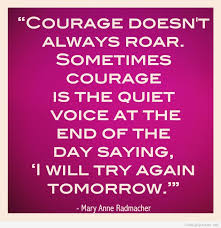
This past week the media was saturated with talk, film, interviews and documentaries about bravery, especially in relation to ANZAC Day. I thought a lot about a relative cut down in his youth (19years old) and buried far from home.
This week too, we discussed in some of my classes that bravery and courage comes in many forms. I asked students to take the writing prompt COURAGE and write a story or personal memoir – fact or fiction – with this as the theme.
One isn’t necessarily born with courage, but one is born with potential. Without courage, we cannot practice any other virtue with consistency. We can’t be kind, true, merciful, generous, or honest.
Maya Angelou
Courage may be standing up to a bully, announcing a divorce, owning up to a misdemeanour, coping with illness or facing a phobia, challenging an unreasonable boss, deciding to emigrate, or travelling alone…
There are plenty of quotes from celebrities about their ideas of the meaning of courage – I distributed a sheet of quotes to trigger a memory, or an essay to agree or disagree.
A concept like courage is a bit like beauty, it can be ‘in the eye of the beholder.’ A topic where we bring our own experiences and emotions to bear. Interpretations very much depending on our perspective, culture, perhaps even religion.
Society often has a military definition or one where people do something for the civic good, but we all have our own memories of having to show courage, or of witnessing bravery – and when and how we did is a good topic to write about, reflect on, and share the story with others – especially if writing to leave a legacy for others.
Courage is fire, and bullying is smoke.
Benjamin Disraeli
The responses from students were inspirational and revealing. It is yet another topic we could fill pages writing creatively about and as usual I suggested to my class if they don’t want to write a ‘true’ account, it’s a good theme for a story or poem – and there is no shortage of anniversaries of battles or conflicts to ensure whatever you produce is topical!
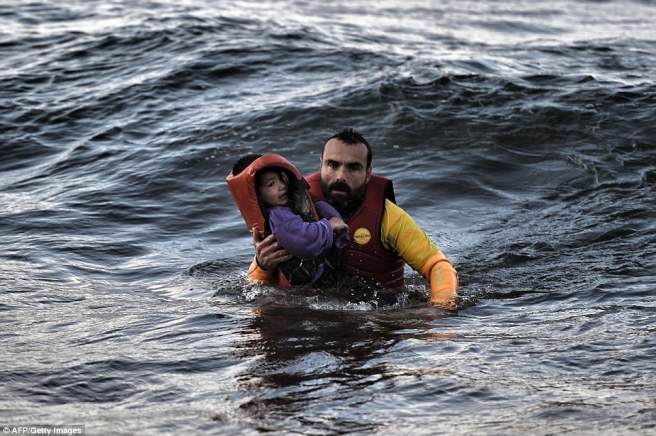
Some of the responses in class:
- It takes courage to believe in yourself, ignore the inner voice that whispers failure, to live your life working towards a goal and not succumbing to those who would sidetrack you.
- It takes courage to speak socially or even speak one to one if you have inhibitions or a speech impediment or lack knowledge of social graces.
- Courage is needed to tell close friends what you think, even if your opinion offends or is critical, or not what they want to hear. Suppressing the truth or true feelings is often indoctrinated into our culture and it takes courage to be your own person – that courage has to be tempered with wisdom.
- For those with a diagnosed mental illness, especially GAD ( Generalised Anxiety Disorder) it takes courage to face the day, mix with people, cope with simple everyday situations, sit exams.
- People who are different struggle with bullying, rejection, and the expectations of others. It can be a brave decision to get out of bed, never mind leave the house.
- There are activists and whistleblowers who face losing their job by taking a stand, or speaking out – conscientious objectors as brave as those who sign up for war, or those just ‘doing their duty’.
- Sometimes it is more courageous to remain silent or not to act – whether a nurse, teacher, or parent – sometimes people have to learn to stand on their own feet or make their own mistakes and onlookers or mentors have to be brave enough to not interfere.
- There are a range of phobias (here is a list of the top 100) from fear of spiders (arachnophobia), to fear of heights (acrophobia), fear of open or crowded spaces ( agoraphobia) to fear of small spaces (claustrophobia) and a combination of some or all of these that many people suffer yet try and conquer everyday.
Ideas and topics flow but as creative writers we have to bring others into our world and have them experience our emotions. Not an easy task, especially if you try and avoid cliched descriptions.
One of the challenges a fiction writer faces, especially when prolific, is coming up with fresh ways to describe emotions. This handy compendium fills that need. It is both a reference and a brainstorming tool, and one of the resources I’ll be turning to most often as I write my own books.”
James Scott Bell, bestselling author of Deceived and Plot & Structure
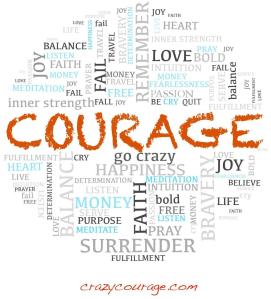
I’ve never considered myself a courageous person, far from it – my body reacts quickly to confronting situations with telltale signs of anxiety or fear. Panic attacks, angry outbursts, hysterical laughter, dry-mouthed silence – I’ve experienced them all and at 63, I still blush and suffer a nervous rash that is barely hidden by one of the many scarves I use as camouflage.
I know a dread of speaking in public is high on many people’s lists of fear so my reaction was not unique at the Australia Day Awards, and later International Women’s Day when I had to speak to a room full of strangers, acquaintances, and friends.
My mouth dried and wouldn’t be lubricated by lips about to crack and a tongue that felt like a piece of wood clogging my throat. I could feel my heart galloping and thought others could see it jumping through my silk blouse. I was sure my face glowed fire-engine red because it felt aflame. The walk to the stage on Australia Day took 30 seconds and my acceptance speech all of two minutes but for me, that was an act of courage.
In my teenage, I survived two severe road accidents, one as a passenger in a car, the other while riding pillion on a motorcycle. I recall trying to stand after both of those accidents, legs shaking uncontrollably and feeling so cold I could have stepped from a freezer. The taste of blood in my mouth metallic and sour. The fear of speed, collision, and pain of getting hurt terrifies me still.
I never tried to get my driving licence, had one lesson from my Dad before I moved out of the home. When another car came towards us, I drove the car straight off the road into a ditch and my brothers had to come to get us out. I never sought lessons from anyone else.
It doesn’t take much for me to relive those accidents and although I’m grateful for all the lifts people have given me in their cars, there are many journeys I avoided or chose a public transport option. Several I have taken took a lot of courage to get into the car. I still apply an ‘imaginary brake’ much to my daughters’ annoyance, although I feel extremely confident in their driving ability.
Nowadays, people are offered counselling after severe traffic accidents but in 1970 and 1971, PTSD or trauma counselling were not names frequently used – we were grateful to survive and left to our own recovery.
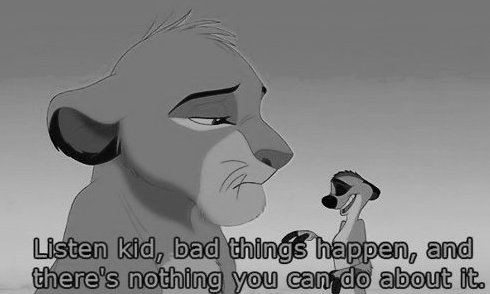
I laugh often but cry easily too, and as I age, ‘the waterworks’ seem to turn on like a tap much more frequently than in the past. I don’t consider tears a sign of weakness, schoolyard ‘crybaby’ taunts forgotten, but I do wish sometimes I could control the upsurge of tears, especially when teaching. We share a lot of sad stories as well as joyous ones in Life Story classes and as the teacher, I should be more in control.
People have said they admire the way I coped with a friend’s suicide and then some months later, the death of my husband, John. However, it was a case of ‘faking it until you make it’ because the outward appearance did not match the turmoil within.
I had a pain in my chest for almost four years as if a stone pressed on my heart, palpitations struck randomly. Often I left Southland Shopping Centre or other places where people gathered, struggling to breathe.
A pattern of insomnia developed too and had me prowling the house in the middle of the night checking doors and each of my daughter’s rooms to make sure they were still safe and breathing.
I didn’t want to be with people but was terrified of being left lonely if something happened to the girls. To all those who thought me ‘brave’, I can only say looks are deceiving.
Many people have to adapt or find extra strength (courage?) to cope with grief, whether it’s losing a person, a home, a job, or health.
I have a fear of heights and have avoided many situations because of this. Although I faced this fear when younger and have the pictures to prove it. However, as I age, I’m not interested in overcoming Acrophobia by bungee jumping or sky-diving or some other extreme challenge and I’ve had occasions when I’ve been rooted to the spot unable to move – up or down!
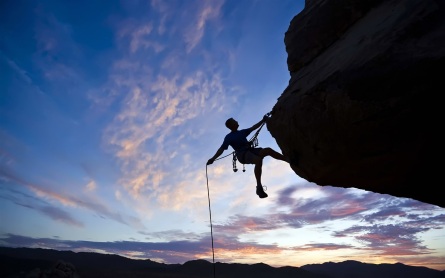
My acrophobia is not so severe that I don’t use lifts or stairs, or fear flying, but I can’t watch adventure documentaries without feeling the fear the participants should feel when they do climb or face great physical heights. I walked away when my daughters went on adrenaline generating rides like the current Batwing Spaceshot and Green Lantern Coaster.
My body reacts as if it is happening to me: trembling, nausea, heart palpitations, tight chest, coldness chilling blood and bone, dizziness…
According to Wikipedia Acrophobia is an extreme or irrational fear or phobia of heights, especially when one is not particularly high up. It belongs to a category of specific phobias, called space and motion discomfort.
Perhaps I only have a version of the phobia because although I sometimes fear the height before I climb, the irrationality that sticks in memory is experiences of what to me seemed ‘great’ height and therefore the fear reasonable!
When did all this start and why? This question discussed in classes when the subject of phobias comes up – and it is a great topic for writers! Give a character a phobia as a flaw and then make them face it, an often-used trope in movies as well as books.
I explored my own fear in depth in a piece of writing because I’ve been scared of heights for as long as I can remember. Not heights in an enclosed space like flying, but when you are high up a mountain (even a hill) and look down. And as someone who loves travel, and has travelled, I’ve a few scary memories and also memories of missing out because of fear.
Standing on a mountain, atop a lookout, a building, a tower… the air circulates, there is no anchor, you can be grabbed or pushed over the edge to float like a scrap of paper to the ground or like a boulder tumble and rumble.
Whatever way I go, the result in mind’s eye, always death or severe pain.
I don’t know why I let my imagination focus on the horrors of losing my grip and/or falling. I can’t remember falling off a ladder and I never slept on a bunk bed until I was 9 years old and on the ship coming to Australia. By that time, my fear was established.
The deep recesses of memory are mined and I wonder if the fear started at middle primary school, at Holmescroft in Greenock, Scotland.

At Holmscroft, we did gymnastics every morning – well it seemed like every morning but was probably once a week. From memory, the gender segregated school grounds infiltrated the gym class and only the girls walked to the hall. Boys may have been considered more sturdy and exercised outside, or were removed to their own gym before the weaker sex marched in pairs dressed in white blouse and thick, ugly, navy blue knickers.
Inside, we jumped over obstacles, skipped and played ball games, scaled a wall ladder, somersaulted on rubber mats, and climbed a rope dangling from the ceiling. The morning organised and graded to ensure everyone learnt the skills the curriculum deemed necessary.
I close my eyes and can smell that rope; the years of impregnated sweat from thousands of school children who attended over its 74-year history. (Holmscroft was built in 1887.)
I feel the harsh texture as I gripped and pulled myself up the plaited python. It seemed a snake, swaying and wriggling, although anchored by a classmate to hold it steady.
The soft white skin on my hands ache and my upper legs chafe against a rope so hard it could be an iron bar. The climb difficult, chest tightening as I lift and puff using muscles I didn’t know were designed for this effort.
The teacher nags: ‘ Hurry up.’
‘ Use your feet more’
‘Put some effort in’
‘There’s a queue here’
‘For goodness sake stop huffing like an old woman’.
Higher and higher I crawl. Classmates egging on, others giggling calling me names: Frog, Toad, Caterpillar, Beetle. Can they see up the leg of my knickers where the elastic is loose? What do I look like creeping and hauling on this rope? What if the elastic bursts and my knickers fall?
The white ceiling grubby with marks from balls and even blobs of ink where smarty-pants pupils have aimed their pen nibs.
In 1961, we hadn’t been introduced to the luxury of fountain pens; Biros and ballpoint still a dream in some inventor’s mind.
Everything blurs from perspiration trickling into my eyes. I want the ordeal to be over, but know I can’t take my hands off the rope to wipe my face.
Tiny fibres from the rope tickle my nose. I want to sneeze. I try to relieve the itch on my shoulder, look down, and stomach lurches. The wooden floor jumps and wobbles like some of my impatient classmates.
Miss King’s face looms large, all glasses and teeth. The parting of her grey hair a squiggly line, the clasp holding her bun in place mottled brown, like the picture of Granny on the mantlepiece at home. ‘Hurry up, girl,’ she snarls, ‘we haven’t got all day.’
The room echoes with the slap of sand-shoes skipping, stamping, running… balls bounce. I hear breath after breath of panting children expending energy with an enthusiasm lost to me.
Or is that panting breath mine?
I gasp for air, lose my grip, the python squirms backwards and forwards. Someone below has let go of the rope.
My arms are water pouring from the tap. The giant snake thrashes and whips. I need to pee. I want to throw up, yet if I take my hands off the rope I’ll crash to the ground.
I let my legs dangle for a moment before sliding to the floor. Seconds later – thud. The pain excruciating, hands burning as if scalded. Legs and back winded by the wooden floorboards, numb at first before the throbbing begins.
Miss King’s scarlet face spits fury mixed with fright. ‘You stupid girl!’
Friends haul me up, commiserating, comforting. I wipe snot and tears with the sleeve of my blouse. The whiteness and freshness now rope-stained, dust-streaked and sweaty. What will Mum say? She always hoped we’d get ‘a couple of turns’ out of our school blouse.
I think of that eight-year-old, bullied into climbing a rope by an insensitive teacher. Panic triumphing over reason. Is that when my fear of heights began?
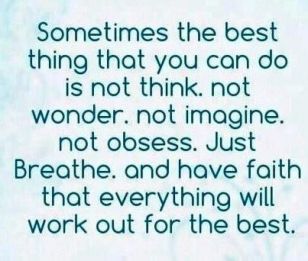
Feel free to share a story of your fear and the courage it takes to conquer or at least survive situations demanding that extra bit of bravery.

Incredible after that lot that you still stand amongst us Mairi….and thank goodness you do! Must be because of your bravery and courage. Well done you.
LikeLike
That’s a very kind comment Kaye, thanks – but I had hoped it would show that everyone has courage or is brave in their own way because that’s just the way of life. You’ve been very brave too in many of the decisions you’ve made and actions taken. Mind you not everyone has my phobias – I think I’ve got a mixture of a few!
I had a lovely private message from one of my daughter’s friends who said the post struck a chord with her and gave her the courage to write about her own experiences and she felt less alone and out of step now. I know her journey and I hope she does write and share because she will make a difference.
LikeLike
Thank you for sharing with us, Mairi. Your post shows that everyone can have courage or be brave in their own way. Such an intimate, heart warming post
LikeLike
Thank you Glenice, we both know many people who are courageous, especially in the face of illness or unexpected traumas – yourself included – perhaps by sharing our stories we’ll move away from the idealised military or sporting definitions:)
LikeLike